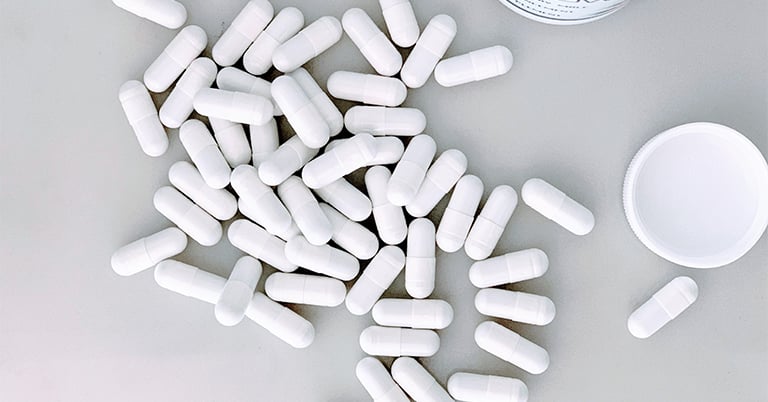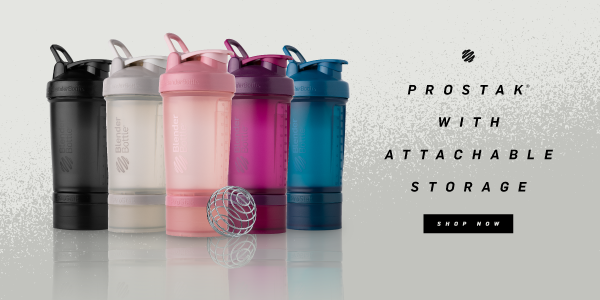Creatine is a naturally occurring compound found in certain foods and produced by our bodies. It provides energy to our muscles during high-intensity activities. While you can get small amounts of creatine from foods like meat and fish, supplementing with creatine allows you to increase levels beyond what food alone provides.
Supplementing with creatine offers benefits such as improved energy production, increased muscle strength, and enhanced exercise performance. However, it's important to consult with a healthcare professional or nutritionist to determine if natural creatine sources or a combination of natural sources and supplementation is right for you.
When considering supplementation, choose reputable brands that undergo testing for purity and safety. This ensures you're getting a reliable source of creatine to support your fitness goals effectively. Not everyone understands the difference between creatine HCL vs. monohydrate. It's essential to be aware of the attributes of both, so you can make the decision that is best for you.
Let's dive into everything you need to know.
Medical Disclaimer: The information provided in this article is for informational purposes only and should not be considered as medical advice. Consult with a qualified healthcare professional for personalized guidance and before making any medical decisions. BlenderBottle is not liable for any adverse effects or consequences resulting from supplement use.
What Is Creatine HCL?
Creatine hydrochloride (HCL) is a type of creatine where a creatine molecule is chemically combined with a hydrochloric acid group. Although hydrochloric acid might sound harmful, it's a completely safe compound to consume. In fact, it's even used as an additive in a wide variety of foods, from corn syrups to canned goods, to cereals. This fusion enhances solubility, which means it dissolves more easily in liquids compared to other forms of creatine.
The enhanced solubility of creatine HCL means that when you mix it with water or other fluids, it dissolves smoothly and without difficulty. This provides a more enjoyable consumption experience and reduces the likelihood of stomach discomfort or bloating that can occur when a substance does not dissolve properly. Moreover, the improved stability ensures that creatine HCL maintains its potency throughout its shelf life, remaining effective for longer periods of time.
Let's explore the pros and cons of creatine HCL.
Pros of Creatine HCL
One of the most prominent attributes of creatine HCL is its solubility.
This feature makes it highly sought-after by fitness enthusiasts who enjoy blending it with their pre-workout or protein shakes. To accomplish this with ease, many people turn to the BlenderBottle shaker bottle, a convenient companion for the task. Simply add water, creatine, and any other ingredients, pop in the BlenderBall wire whisk, and shake until smooth.
Perhaps more notable is the fact that creatine HCL's solubility prevents complications from occurring as a result of undermixing. It's not uncommon for users to experience stomach irritability or bloating if a compound is not mixed properly. Overall, creatine HCL is more pleasant to consume, due to less bloating, less stomach irritability, and better absorption.
Since creatine HCL is so soluble, it results in minimal water retention. This is due to the fact that only a minute amount of water is required to facilitate the transport of creatine molecules. This results in strength and muscle gain without the downside of a "puffy" look. Simply put, your physique will look much firmer and tighter as opposed to if you were retaining water.
A further benefit of this rapid transport that users will experience is faster results. In context, you will see an increase in your work capacity and strength relatively quickly.
Additional benefits of creatine HCL:
- Requires a lower dose than creatine monohydrate
- Does not require a "loading cycle" (whereas other creatines might)
- Faster absorption
- Increased body mass
- Faster muscle recovery
- Reduced fatigue
- Relatively faster gains in strength
Cons of Creatine HCL
The most prominent negative aspect of using creatine HCL is its price. This type of creatine generally costs more than three times the amount of creatine monohydrate.
For those who plan on using creatine regularly, this expense can quickly add up. This is particularly true with higher-end brands. However, although this type of creatine is more expensive, it's also more concentrated than creatine monohydrate. Your serving sizes will be smaller, meaning an equal volume will last longer.
Still, in general, you will spend more per serving on creatine HCL than monohydrate.
Additionally, creatine HCL can sometimes have a negative effect if you take it with other substances. Most notably, this includes substances that contain caffeine. A study published by the National Institutes of Health discusses the interaction between creatine and caffeine regarding their performance-enhancing effects. While there is no direct interaction in how they are processed in the body, caffeine seems to reduce the positive impact of creatine on performance, possibly due to differences in muscle relaxation time. Previous research results might have been affected by factors such as an insufficient washout period or stopping caffeine intake before testing. Another study tried to replicate these findings, using a longer washout period and multiple testing sessions after stopping caffeine, and still found a reduction in the creatine’s performance-enhancing effects, possibly due to GI discomfort reported by some participants when using creatine with caffeine. (NIH, 2017).
As you might guess, not being able to take creatine with a caffeinated pre-workout supplement could cause you to feel more fatigued and less focused during your workouts.
Other possible negative side effects of creatine HCL may include:
- Stomach pain
- Diarrhea
- Unwanted weight gain
People with pre-existing conditions such as kidney disease and diabetes are advised to speak to a healthcare professional before supplementing with creatine.
What Is Creatine Monohydrate?
Creatine monohydrate is by far the most popular form of creatine. As such, more research has been done on this type of creatine. This means that there is plenty of scientific proof regarding how it interacts with the human body.
As we explained above, our bodies naturally synthesize creatine. The creatine compounds in these scenarios closely resemble creatine monohydrate. The chemical structure of creatine monohydrate is as its name implies; it is simply creatine combined with a single molecule of water.
To better understand the effects of creatine monohydrate, let's explore the pros and cons.
Pros of Creatine Monohydrate
As previously mentioned, there has been extensive research on the effects of creatine monohydrate.
One significant benefit is how it helps your cells produce more energy. This is achieved through aiding in the production of adenosine triphosphate (ATP). ATP is a molecule that stores and transfers energy in living cells. It acts as the primary source of energy for various cellular processes, like muscle contraction, nerve signaling, and cell functions. When needed, ATP releases energy by breaking down into adenosine diphosphate (ADP) and inorganic phosphate (Pi). This energy releases powers essential activities in the cell. ATP is continuously used and remade to support the body's vital functions. (NIH, 2023).
Creatine monohydrate is also well known for its ability to support muscle function. In context, this means that it can:
- Aid in the formation of new muscle fibers
- Decrease levels of myostatin
- Raise the levels of insulin-like growth factor 1 (IGF-1)
In contrast to the price of creatine HCL, creatine monohydrate is also quite affordable. This makes it an ideal option for those who are on a relatively tight budget. This level of accessibility is why many people prefer this option‚ especially those who have never used creatine before.
One of the primary benefits of using creatine is the ability to improve your muscle-building capacity. This is primarily facilitated by increasing your maximum workload.
Benefits of creatine monohydrate may include:
- Increased body mass
- Reduced fatigue and enhanced recovery
- Relatively faster gains in strength
- Enhanced performance in the gym
When you can do more within a single workout, you can achieve better results at a faster pace. Creatine users also experience increased recovery rates, allowing them to train again sooner. Overall, you'll find that you'll reach your fitness goals sooner than expected.
Cons of Creatine Monohydrate
Despite its benefits, there are negative aspects of creatine monohydrate. Primarily, these stem from its poor solubility.
Users often find that they need to thoroughly mix creatine monohydrate with water or another liquid before it will dissolve. If you do not mix it properly, you may experience stomach discomfort or bloating.
Another consequence of its poor solubility is the need to incorporate a loading cycle. This refers to a scenario where you double the recommended dosage for the first few days before tapering down to the regular (or maintenance) dosage. This helps saturate your body with creatine monohydrate to get the full effects.
In terms of how creatine monohydrate affects your appearance, some people find that they retain a large amount of water when they begin using it. This can result in a "softer" appearance that creates the illusion of fat gain. Fortunately, it's possible to avoid this scenario by foregoing the loading phase. Instead, you simply take maintenance levels of creatine monohydrate as soon as you begin using the supplement.
It's also important to be aware of some very low-quality creatine monohydrate products on the market. Since people expect creatine monohydrate to be inexpensive anyway, they don't always research the source as thoroughly as they might with a more expensive purchase. It's in your best interest to consider any supplement brand's reviews before making your purchase.
Other possible negative side effects of creatine monohydrate may include:
- Stomach pain
- Diarrhea
Once again, people with preexisting conditions such as kidney disease and diabetes are advised to speak to a healthcare professional before using creatine supplements.
Creatine HCL vs Monohydrate: Which Is Right for Me?
The answer depends on your personal goals. Both creatine monohydrate and creatine HCL offer unique advantages and considerations. Creatine monohydrate is the most popular and extensively researched form of creatine, making it a safe choice for those who are new to creatine supplementation. It aids in energy production, supports muscle function, and can improve muscle-building capacity. Additionally, creatine monohydrate is affordable and accessible for individuals on a tight budget.
On the other hand, creatine HCL has enhanced solubility and stability, making it easier to mix and consume. It also requires a lower dosage than creatine monohydrate, is rapidly absorbed, and results in minimal water retention. Additionally, studies suggest that creatine HCL may offer faster results in terms of increased work capacity, strength gains, and muscle recovery. However, it tends to be more expensive than creatine monohydrate and may not be suitable for those who consume caffeinated pre-workout supplements due to a reduction in the creatine’s performance-enhancing effects. (NIH, 2017).
It's important to note that regardless of the form you choose, always follow the recommended dosage and always consult with a healthcare professional, especially if you have any pre-existing health conditions. Additionally, ensure you purchase creatine from reputable brands to avoid low-quality products.
Remember that creatine supplementation is just one aspect of optimizing your fitness journey. It should be combined with proper nutrition, regular exercise, and adequate rest for optimal results. By making an informed decision and incorporating creatine into your routine effectively, you can enhance your workout performance, muscle gains, and overall fitness goals.
Sports Nutrition
Sports supplements are now found everywhere. The industry is continually evolving and innovating, and the ever-growing range of products continues to make claims ranging from revolutionizing your health to enabling sporting potential.
Creatine supplementation is an area that is widely studied and speculated as stated above. With the results of these studies, it is clear the effects of creatine supplementation help muscle mass as well as hydration, but the water content of muscles does not necessarily correlate to strength without proper training alongside creatine supplementation.
When considering muscle creatine levels, natural creatine will clearly not produce high enough creatine levels. Sports supplementation will help with that, creating higher creatine levels.
Looking for more information about creatine HCL or creatine monohydrate and how creatine can help you accomplish your goals? Read our complete Guide to Creatine.
References:
National Institutes of Health. (2017). “Effects of coffee and caffeine anhydrous intake during creatine loading.” Retrieved from https://www.ncbi.nlm.nih.gov/pmc/articles/PMC4808512/
National Institutes of Health. (2011). “Caffeine counteracts the ergogenic action of muscle creatine loading.” Retrieved from https://www.ncbi.nlm.nih.gov/pmc/articles/PMC3407788/
National Institutes of Health. (2017). "Physiology, Adenosine Triphosphate." Retrieved from https://www.ncbi.nlm.nih.gov/books/NBK553175/
Food and Nutrition Sciences, Vol.6 No.17. (2015). "Creatine HCl and creatine monohydrate improve strength but only creatine HCl induced changes on body composition in recreational weightlifters." Retrieved from https://doi.org/10.4236/fns.2015.617167




2 comments
BlenderBottle
Hi Rish, thanks for your question. Check out the section above, “Cons of Creatine HCL”, where we discuss this:
“A study published by the National Institutes of Health discusses the interaction between creatine and caffeine regarding their performance-enhancing effects. While there is no direct interaction in how they are processed in the body, caffeine seems to reduce the positive impact of creatine on performance, possibly due to differences in muscle relaxation time. Previous research results might have been affected by factors such as an insufficient washout period or stopping caffeine intake before testing. Another study tried to replicate these findings, using a longer washout period and multiple testing sessions after stopping caffeine, and still found a reduction in the creatine’s performance-enhancing effects, possibly due to GI discomfort reported by some participants when using creatine with caffeine. (NIH, 2017).”
Rish
You say HCL is not suitable to be consumed with caffeine pre workouts and give no explanation as to why? So why?
Leave a comment
All comments are moderated before being published.
This site is protected by reCAPTCHA and the Google Privacy Policy and Terms of Service apply.